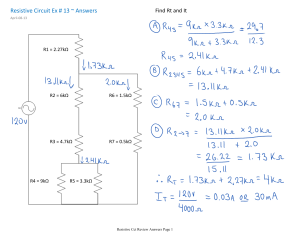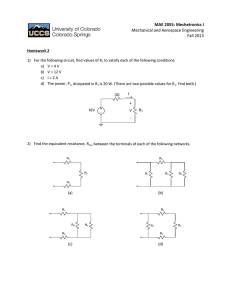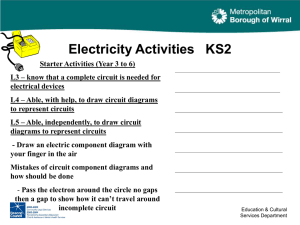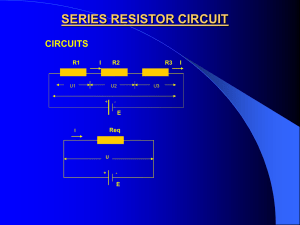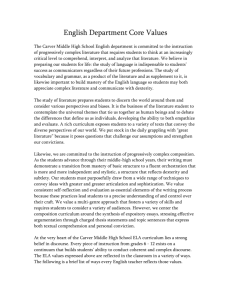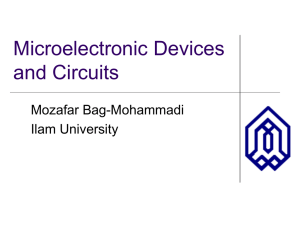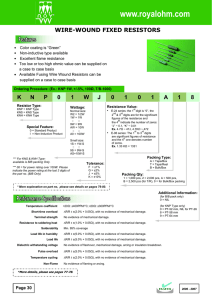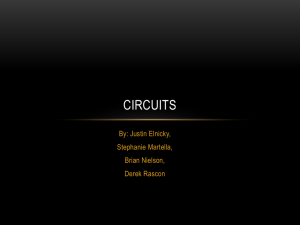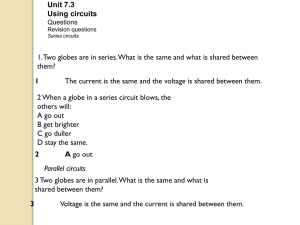Power Factor Powerpoint
advertisement
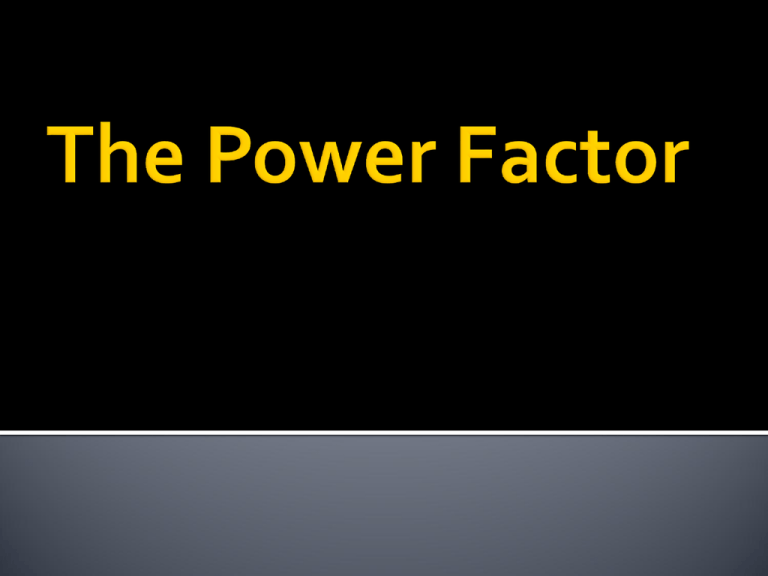
What is the power factor? A number that represents the portion of the apparent power dissipated as true power. (Number represented as a decimal fraction or percentage.) Eq. 24.22 PF = TP/AP AP= Apparent Power TP= True Power or Real Power • In an electric power system, a load with a low power factor draws more current than a load with a high power factor for the same amount of useful power transferred. • The higher currents increase the energy lost in the distribution system, and require larger wires and other equipment. • Because of the costs of larger equipment and wasted energy, electrical utilities will usually charge a higher cost to industrial or commercial customers where there is a low power factor. • An automatic power factor correction unit consists of a number of capacitor that are switched by means of contactors. These contactors are controlled by a regulator that measures power factor in an electrical network. Substituting the equations for TP and AP in the Power Factor equation will yield: 2 2 IR R / IT Z = PF For Series Circuits Only!! In series circuits, the current is the same, and IR equals IT. Therefore this power factor equation becomes: •Eq. 24.23 IR 2R / 2 IT Z R / Z = PF Eq. 24.23 is modified as: Eq. 24.24 IR / IZ = PF (Note: IZ = IT) Eq. 24.25 S= Apparent Power P= True Power Q= Reactive Power PF = Cos θ Find the power factor of a series circuit when R=5kΩ, Z=7.07kΩ, θ= 45°, VS= 20V, and IT = 2.82mA Find the power factor of a series circuit when R=5kΩ, Z=7.07kΩ, θ= 45°, VS= 20V, and IT = 2.82mA PF = (2.82mA)2*5kΩ/(2.82mA)2*7.07k Ω = .707 PF = 5kΩ/7.07kΩ = .707 PF = Cos 45° = .707 Last equation to know Combining the previous equations gives us an equation for true power that is universal. Can be used for any type of circuit. Eq. 24.26 ▪TP = ITVS Cos θ http://www.allaboutcircuits.com/ vol_2/chpt_11/4.html
